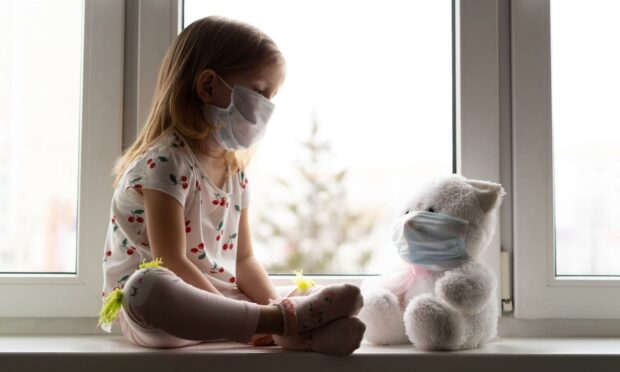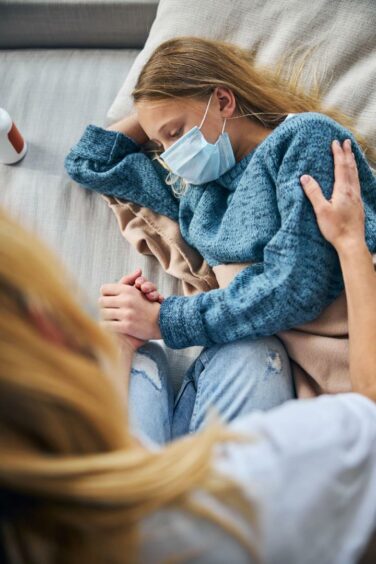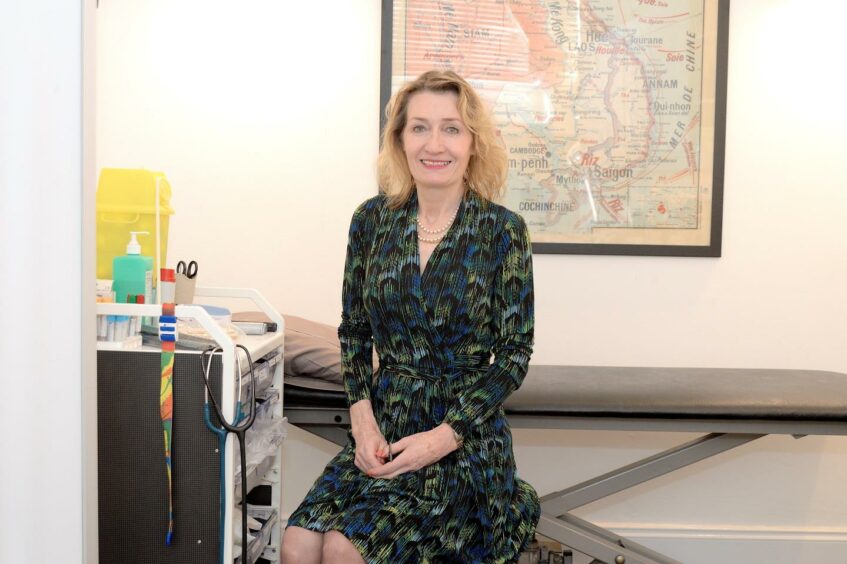It’s easy to think that if your child catches Covid, surely the whole household is likely to come down with it too. So, why is it that some parents catch Covid from their kids, while others somehow manage to stay virus-free?
After an initial steep fall, Omicron cases appear to have plateaued in the UK right now, levelling out at an average of around 90,000 a day. Particularly high levels of Covid are being detected in children, with cases rising amongst 10-19-year-olds, which is likely due to pupils returning to school after the Christmas holidays too.
Yet when it comes to parents, are some just luckier than others?
There’s no guarantee that just because a child tests positive, their parents are going to catch Covid too – even if you’re not really isolating from one another at home.
“I’ve got lots of families where some mothers or fathers haven’t got it – and there are lots of reasons for that,” says Dr Paul Ettlinger, founder of London General Practice (thelondongeneralpractice.com).
Viral load and immunity
Ettlinger believes there are two main factors that determine whether Covid will be passed from a child to a parent. “One of the reasons is the actual viral load that the child has. If they don’t have a high viral load, they may not be transmissible,” Ettlinger explains. “The other reason is the immunity of the mother or the father.”
Immunity can come from antibodies or T cells, meaning “the baseline immunity in the body. It’s something that you would have got from having either the vaccination, or you might have had the actual virus without knowing it.”
After all, some parents may have previously had asymptomatic Covid, giving them a greater level of protection. In addition, new research suggests another possible reason for increased immunity.
Dr Belinda Griffiths, from The Fleet Street Clinic (fleetstreetclinic.com) explains: “There is no conclusive proof as yet, but the theory of why some people will catch Covid from close contacts and other people in the same close contact will not, is thought to be due to possible previous exposure to a coronavirus, such as the common cold, giving some form of immunity or protection.”
That doesn’t mean that if you’ve had a cold you’re immune to Covid, but the exposure may in some cases have helped: “It is thought that the pre-existing T cells from a previous coronavirus quickly deal with the threat of a new infection by triggering an immune response, so the individual does not have symptoms or signs of infection. But the tests are not yet fully conclusive and we need more data.”
Can you reduce the risk of transmission at home?
While adults sharing the same house or flat may be able to isolate to some extent, it’s a lot harder when children are involved.
“If you want to be strict, then yes, you should do the strict isolation, wear a mask, etc,” says Dr Ettlinger. “But of course, you’ve got to take into account that [the parents] have probably been looking after their child anyway when they were actually infectious.”
And if your children are young, feeling poorly, and you don’t have enough rooms to keep everyone separate anyway, then of course it’s understandable isolating within the home isn’t always realistic.
The most important thing you can do, says Ettlinger: “Definitely to get vaccinated. The risks of catching Covid far outweigh the risks of vaccination – that is very, very important.”




